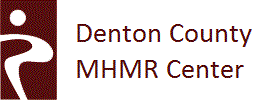What We Are
The Community Health Worker (CHW) Certification Program specializing in Opioid and
Other Substance Use Disorders (OSUDS) project is a joint effort between the University
of North Texas College of Health & Public Service, University of North Texas Health
Science Center (UNTHSC), and the surrounding DFW/North Texas community. The purpose
of CHW-OSUDS is to address the shortage of healthcare workforce in DFW— especially
in underserved communities-- by providing an online curriculum and an optional apprenticeship
to participants.
In addition to UNT students, the program is looking for CHWs without credentials who
have been in treatment/recovery for substance use themselves who can work toward their
Licensed Chemical Dependency Counselor (LCDC) credential without having to earn a
degree.
Three-Part Program Structure:
This innovative program is structured with three integral components, each designed
to meet the distinct needs of aspiring and practicing Community Health Workers (CHWs):
-
Establish and expand an internship-based Community Health Worker Certification Program (they will seek state certification) from the existing addiction studies and social work courses, and provide stipends to offset expenses that would prevent success in training.
-
Establish and expand a Community Health Worker Apprenticeship Program that will be registered with the Texas Workforce Commission (TWC) and provide job placement services and on-the-job training to new CHW-substance use disorder workers.
- Develop a new Community Health Worker Continuing Education Training Site for the CHW workforce.
In sum, the Community Health Worker Program, through its tripartite structure, aims to produce, support, and enhance the caliber of Community Health Workers, ensuring they are well-equipped to serve communities effectively.


